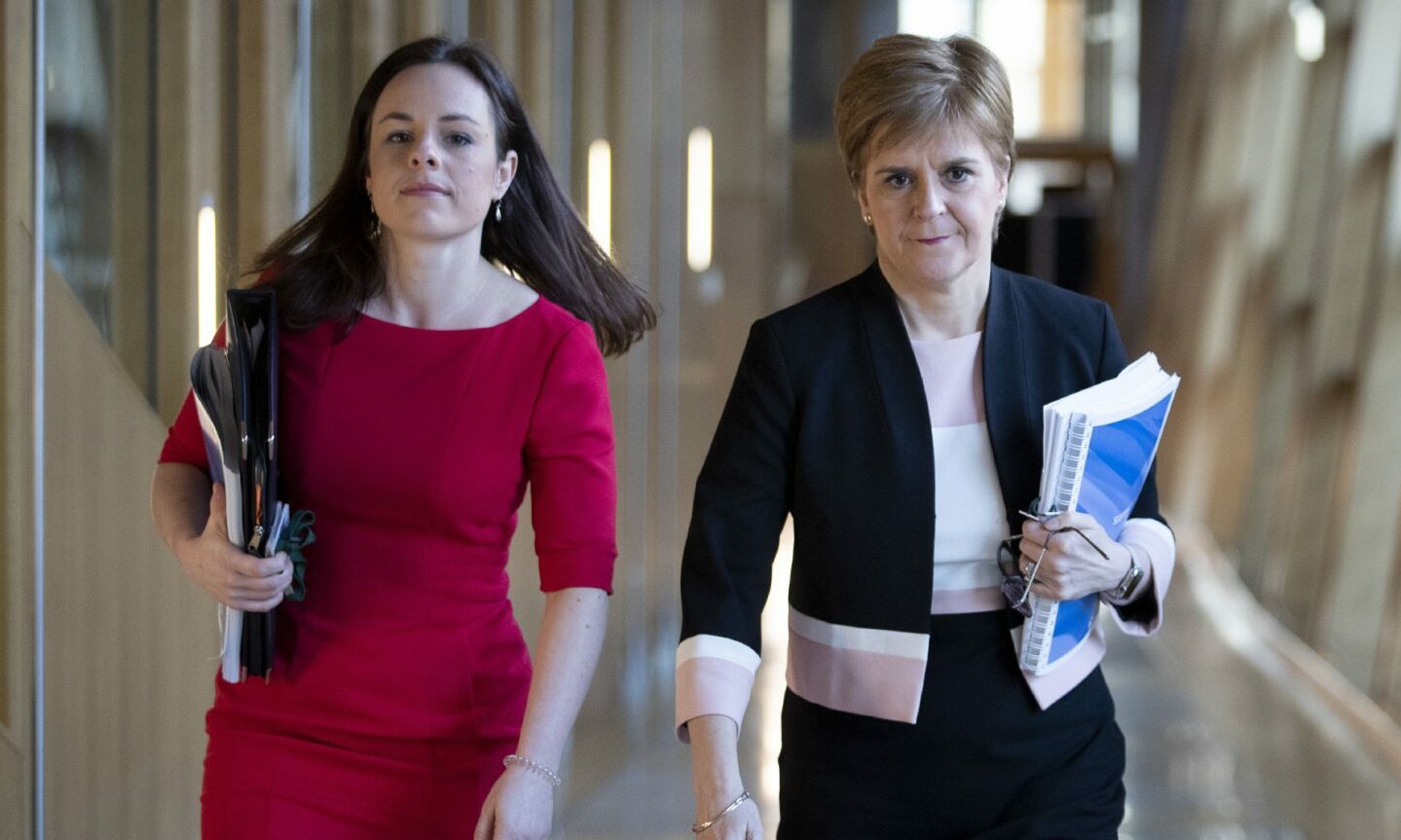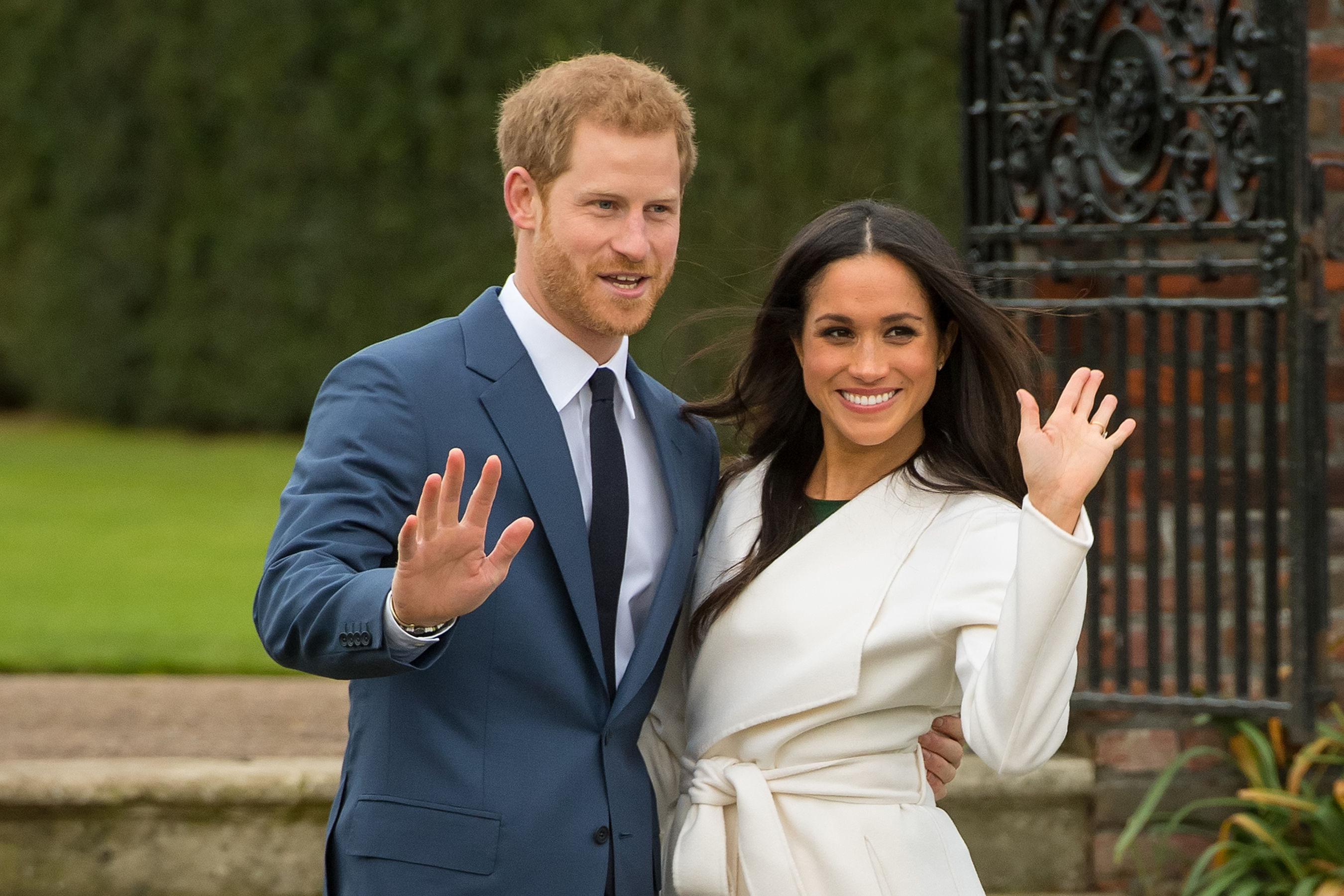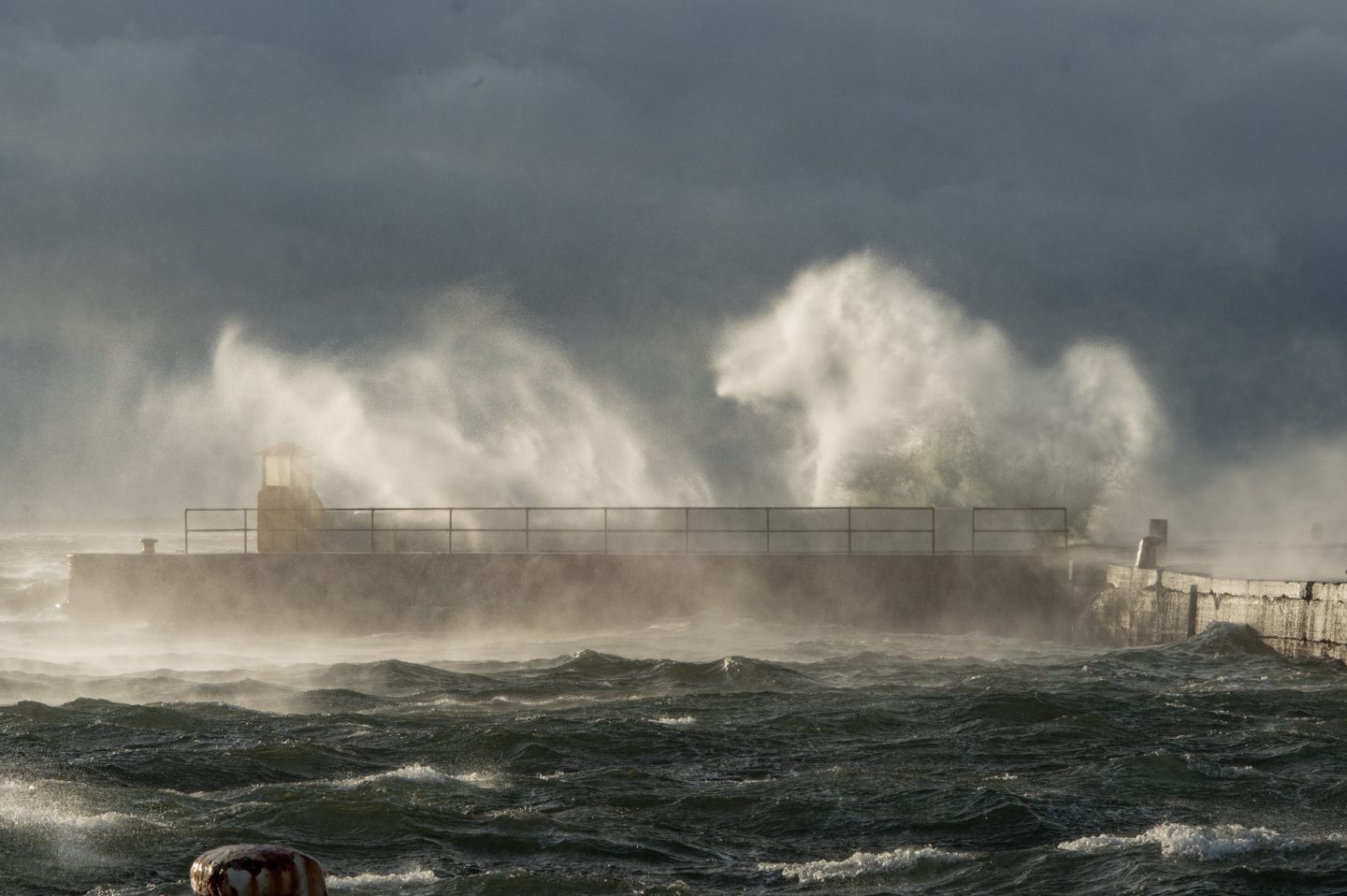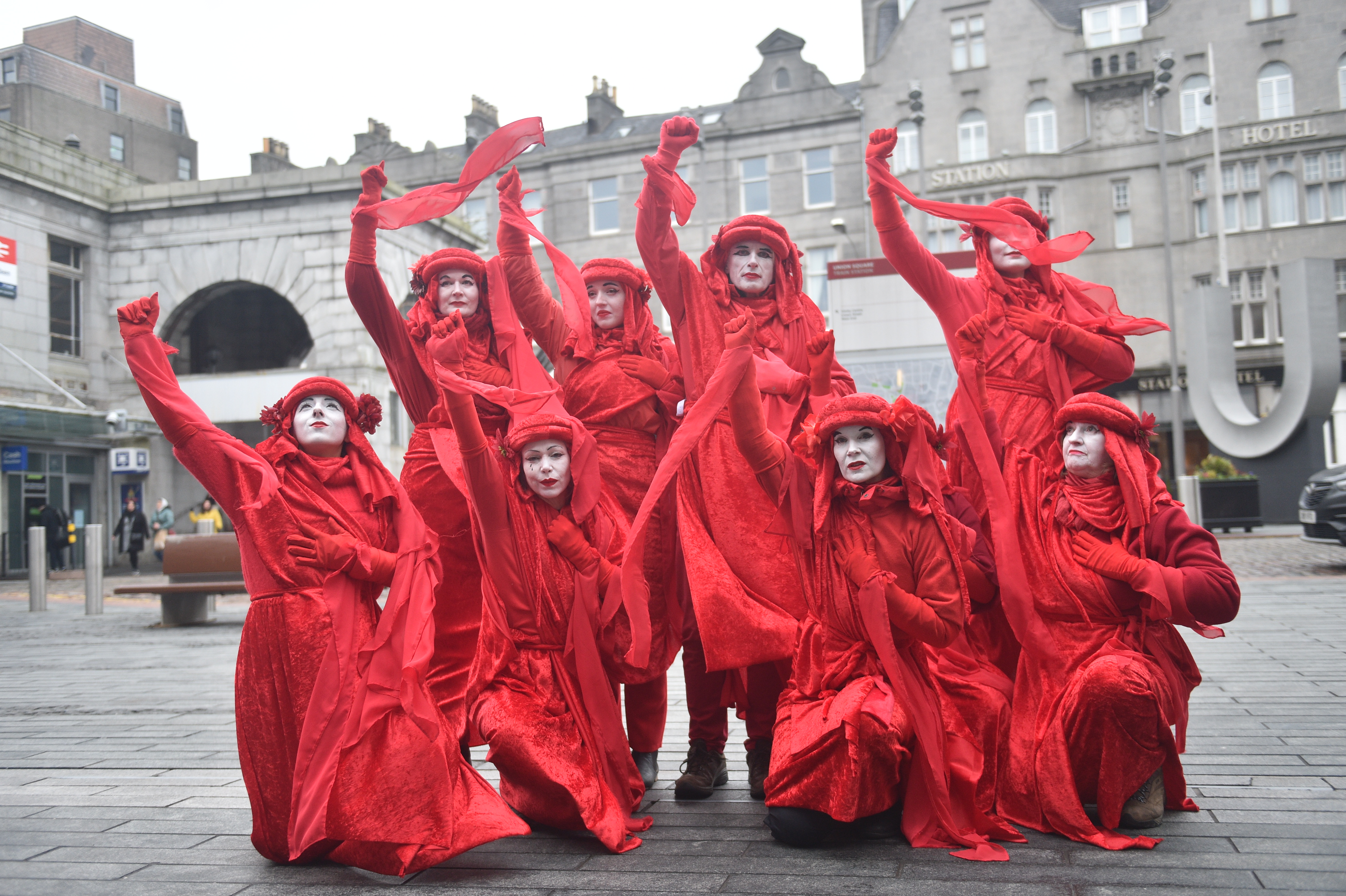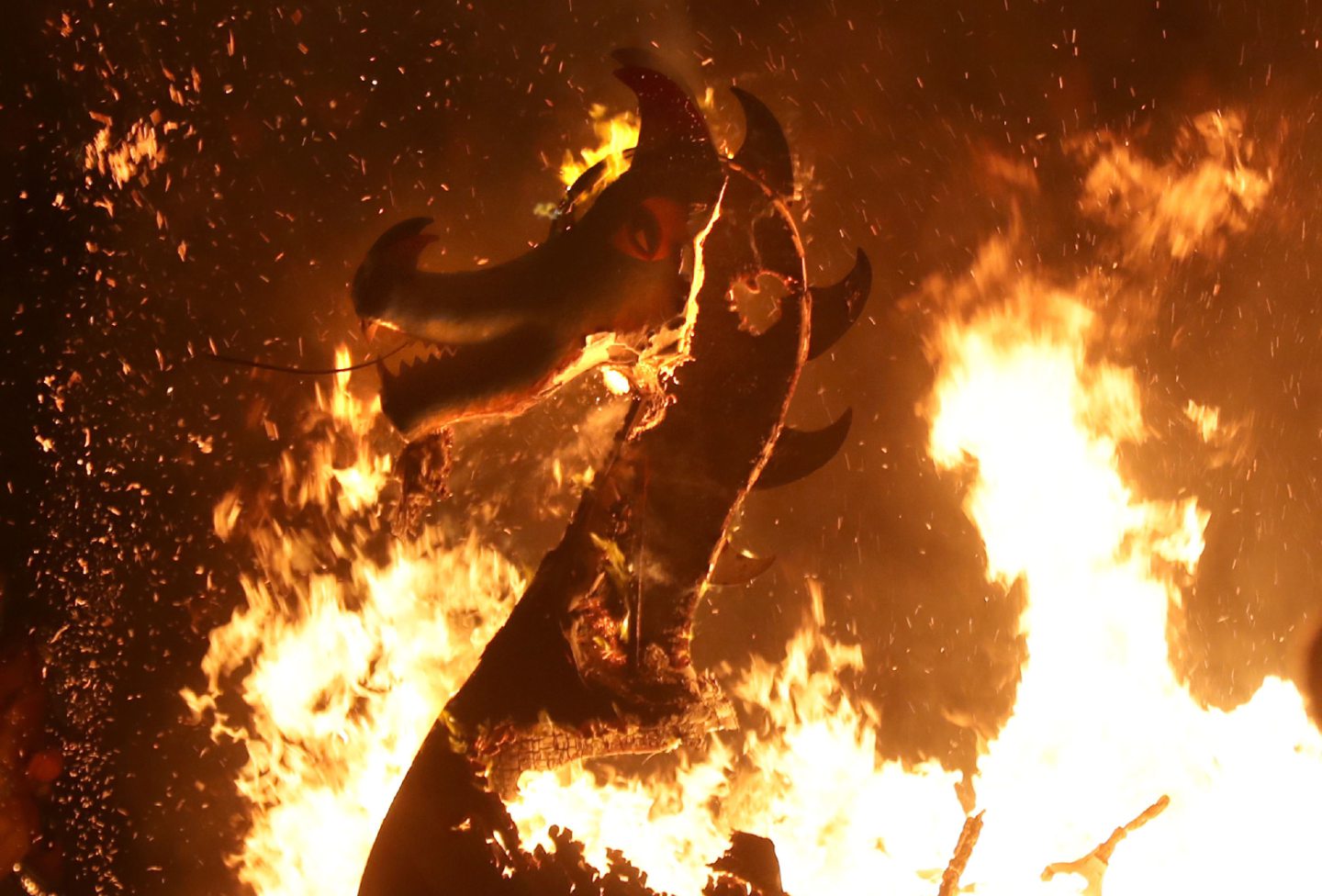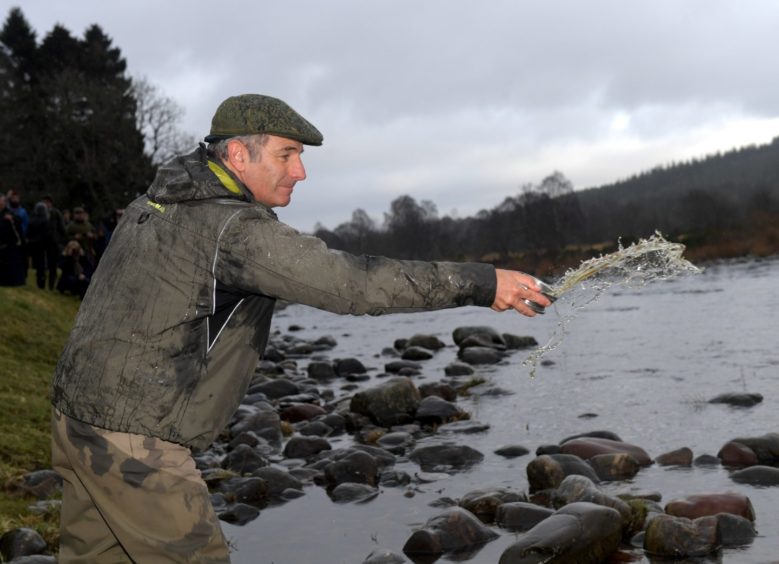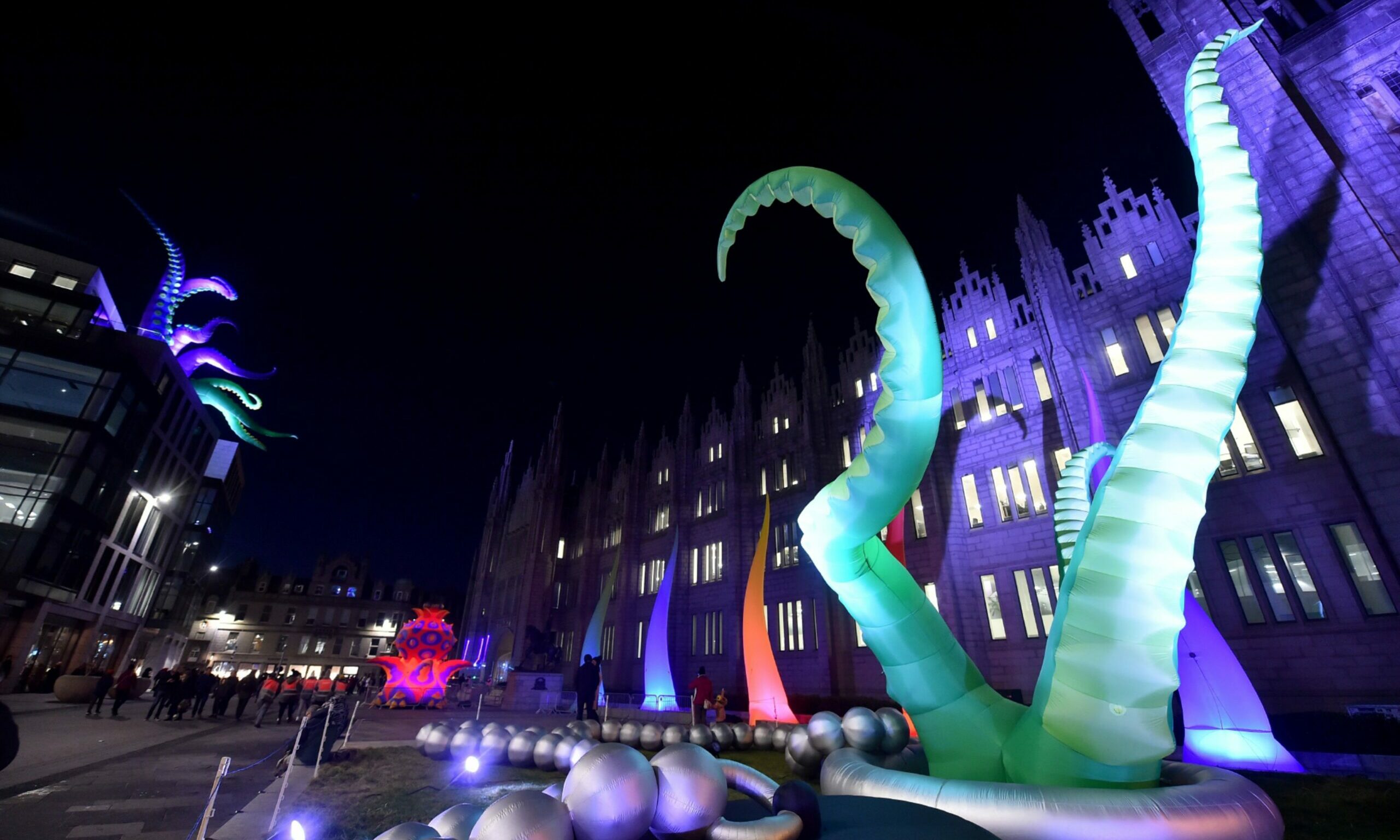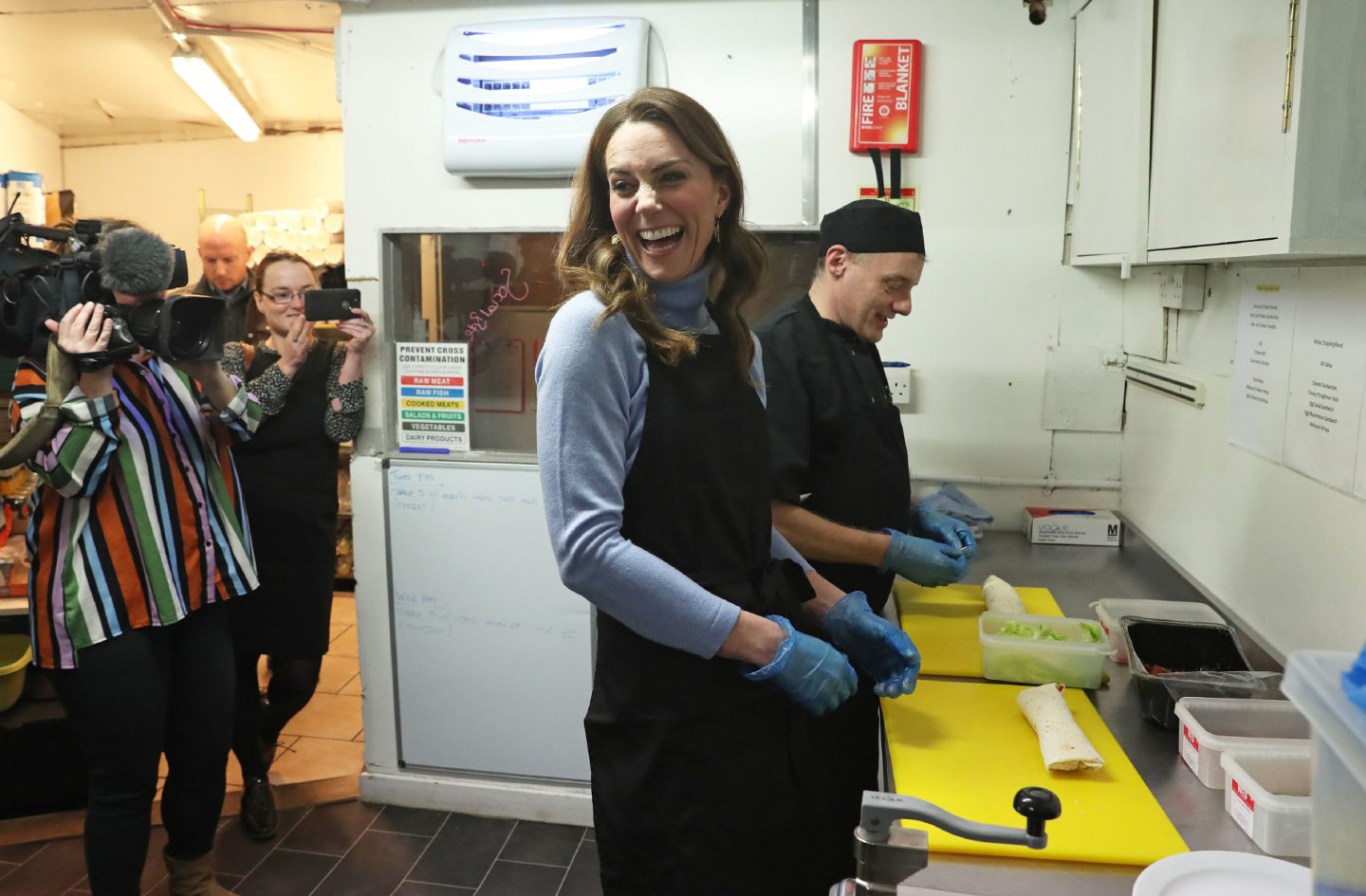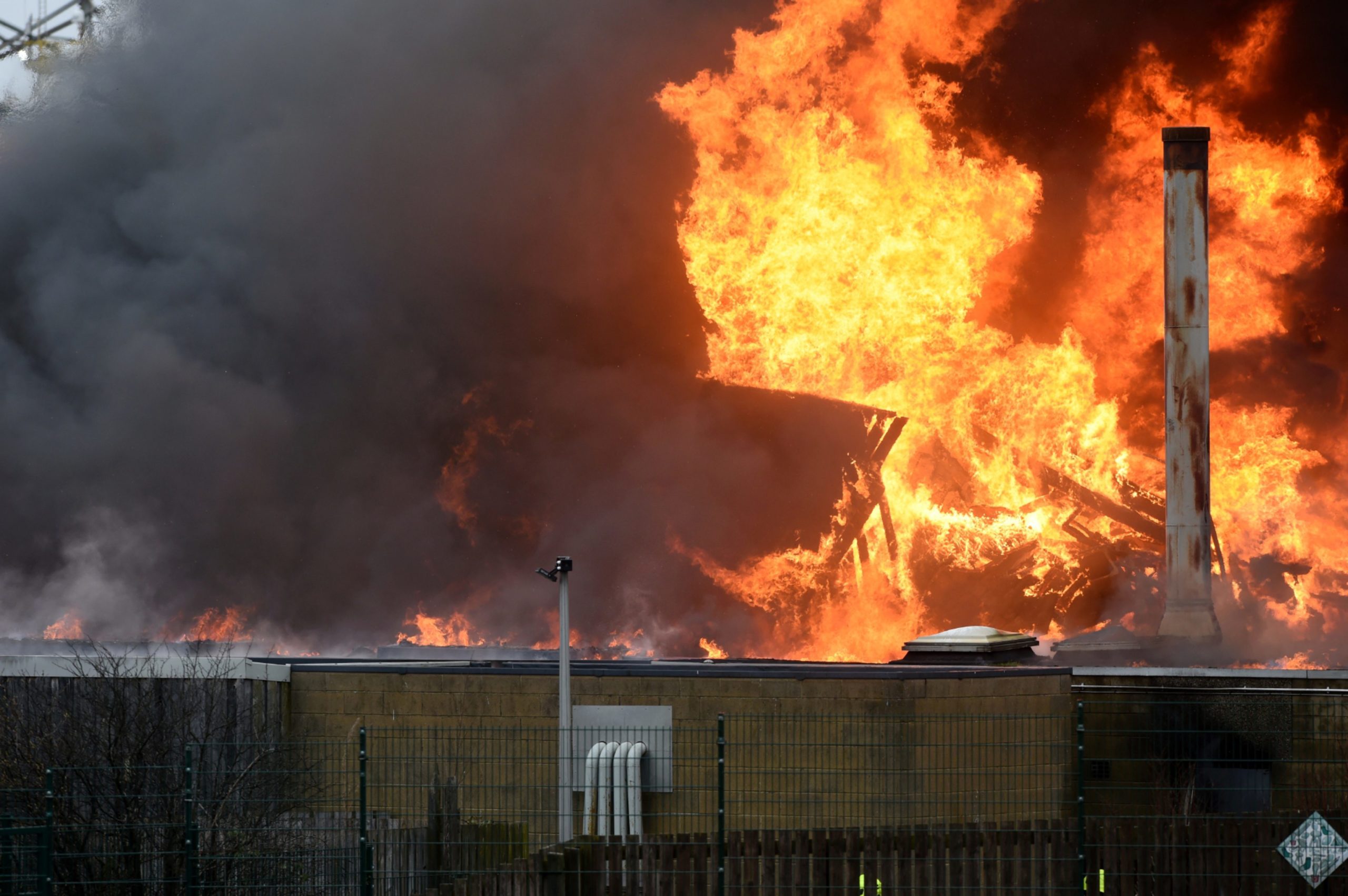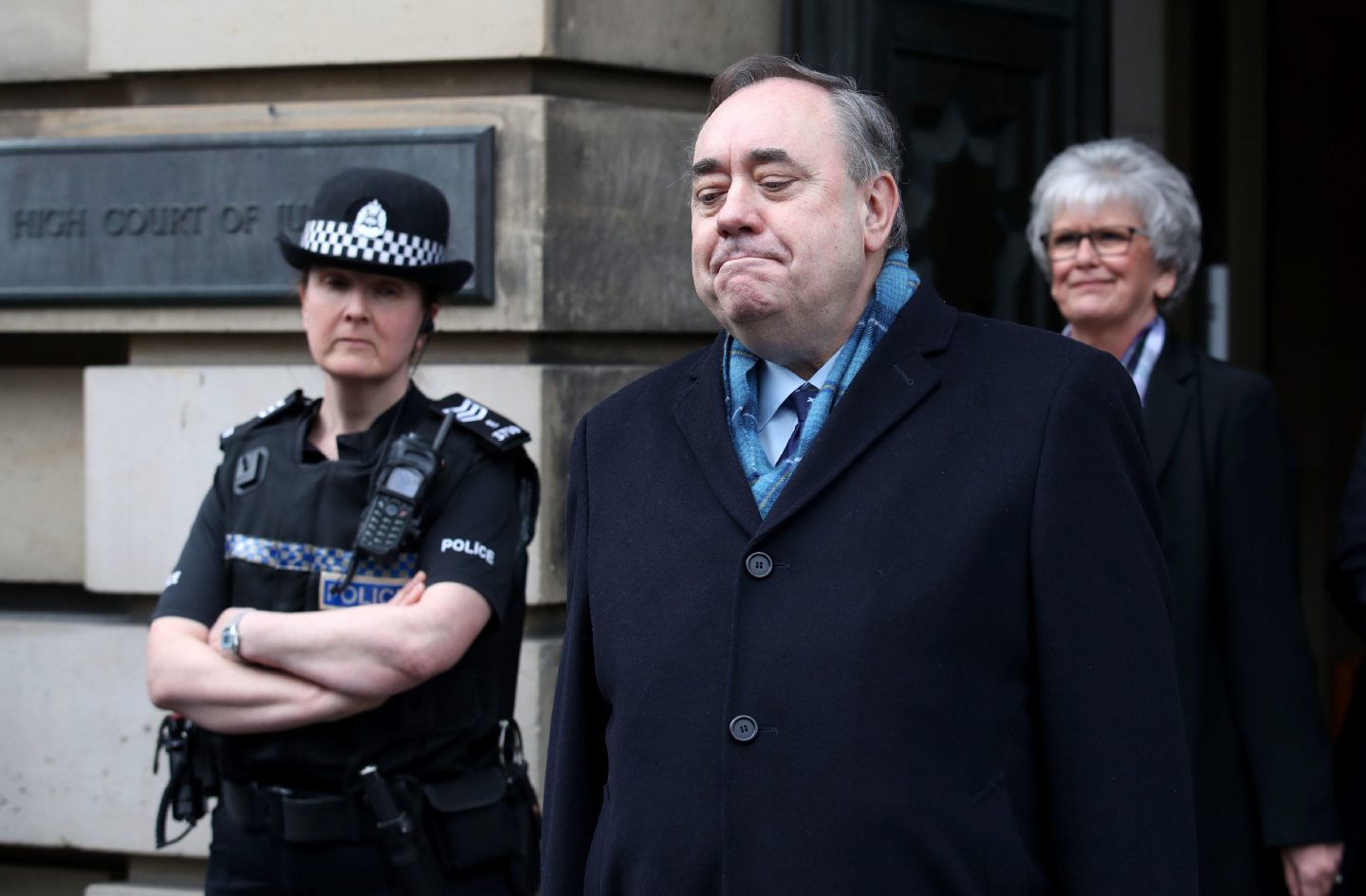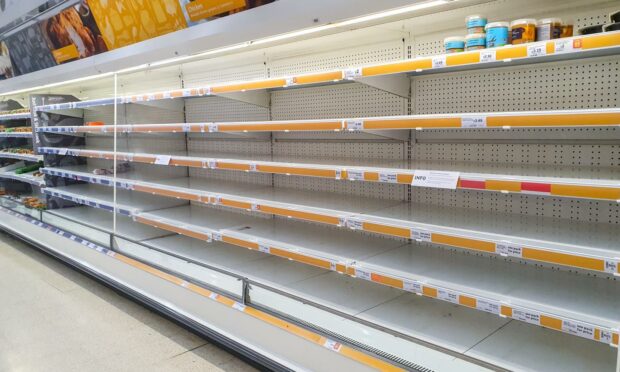While the coronavirus crisis has dominated all aspects of life in 2020, the first few months of the year appeared comparatively calmer.
Despite this, there was still plenty of political upheaval as the UK formally withdrew from the European Union on January 31.
The move came following a series of delays in 2019 and marked the country’s entry to the transition period – with the minute details of the two institutions’ future relationship still being thrashed out.
The Scottish Government’s 2020 spending plans were thrown into chaos following the resignation of finance secretary Derek Mackay on the eve of its budget after it emerged he had sent hundreds of inappropriate texts to a 16-year-old schoolboy.
Public Finance Minister Kate Forbes, an MSP from Dingwall, was thrust into the limelight to take over his duties.
Elsewhere the Scottish Conservatives participated in what would be their first of two leadership elections, appointing Jackson Carlaw party leader – a role he would only remain in for a few months – while the Labour Party began voting for Sir Keir Starmer to become their new leader.
In local government, questions were raised regarding Highland Council’s financial stability with a warning of harsh cost-cutting, while local authorities all considered hiking up council tax to ease the pressure on stretched-thin finances.
And, looking to the future, Highlands And Islands Enterprise (HIE) lodged a planning application for a £17 million spaceport in Sutherland, while proposals were unveiled for a £60m energy transition zone in Aberdeen to help the city pivot from fossil fuels to renewables.
Amid these, references to the little-known Covid-19 strain of coronavirus became more and more frequent in the pages of The Press and Journal, ahead of the first confirmed case arriving in NHS Grampian at the start of March.
January
January 2: A state of emergency is declared in Australia as bushfires ravage the country.
January 7: The Labour Party formally starts its leadership election.
January 8: Prince Harry and Meghan announce they will “step back” as senior members of the royal family.
January 8: 176 people are killed when Ukraine International Airlines Flight 752 is mistakenly shot down by Iran’s armed forces.
January 11: The Northern Ireland Assembly reconvenes for the first time in three years.
January 12: Storm Brendan sweeps the country, forcing schools and businesses closed as they contend with its 100mph gusts and torrential rains.
January 16: Members of the costumed Red Rebel Brigade from action group Extinction Rebellion blockade the Aberdeen headquarters of oil giant Shell and protest in the city centre during a day of action over climate change.
January 16: Impeachment proceedings begin against Donald Trump.
January 19: Princess Anne meets with members of the Fraserburgh, Peterhead and Buckie lifeboat teams to lay a wreath to mark 50 years since the Fraserburgh lifeboat disaster which killed five volunteers.
January 28: Hundreds gather for the annual Up Helly Aa Viking festival in Shetland, which originated in the 1880s.
January 30: The World Health Organisation declares the outbreak of coronavirus a Public Health Emergency Of International Concern.
January 31: Former Aberdeen Depute Provost Alan Donnelly, who sexually assaulted a man, is ordered to pay his victim compensation.
January 31: The United Kingdom formally withdraws from the European Union, prompting the start of a “transition” period for negotiations.
February
February 2: The 2020 River Dee fishing season is officially opened with some help from actor and singer Robson Green.
February 4: Boris Johnson, Sir David Attenborough and Italian Prime Minister Giuseppe Conte launch a major UN climate summit, to be held in Glasgow.
February 6: Finance Secretary Derek Mackay resigns after sending hundreds of inappropriate messages to a 16-year-old schoolboy.
February 6: The new Finance Secretary Kate Forbes presents the Scottish Government budget.
February 11: The World Health Organisation names the coronavirus disease Covid-19.
February 12: Kate Middleton, the Countess of Strathearn, serves up lunch at the Social Bite cafe in Aberdeen after meeting employees, volunteers and customers who have experienced homelessness.
February 13: More than 70 workers are left jobless as the historic Treetops Hotel in Aberdeen shuts up shop unexpectedly amid “difficult trading conditions”.
February 13: Giant inflatable tentacles take over Aberdeen city centre as part of the Spectra festival of light.
February 13: Sajid Javid resigns as Chancellor and is replaced with Rishi Sunak.
February 18: Former police inspector Keith Farquharson is found guilty of killing his wife Alice, a pupil support assistant at Hazlehead Primary in Aberdeen.
February 24: Seven fire engines are needed to tackle a major blaze at Park Primary in Invergordon, Easter Ross. An old laptop is later suspected as the cause.
February 27: The spread of Covid-19 prompts the largest-ever single-day drop on the Dow Jones stock market.
February 28: The first death from coronavirus is recorded in the UK; a man quarantined on the Diamond Princess cruise ship.
February 29: Boris Johnson announces his engagement to Carrie Symonds, and says they are expecting a baby.
February 29: A conditional peace treaty is signed, leading the US to begin gradually withdrawing troops from Afghanistan.
March
March 1: The first Scottish case of coronavirus is detected by NHS Tayside, with NHS Grampian confirming its first case three days later and NHS Highland on March 14.
March 5: Regional airline FlyBe, which had a major presence in the north, north-east and islands, enters into administration after failing to secure a £100m loan.
March 9: Keith Rizzo is found guilty of the “vile and brutal” murder of his 23-year-old girlfriend Neomi Smith at her home in Brechin.
March 9: Former First Minister Alex Salmond goes on trial accused of 14 charges, including attempted rape. He is later acquitted of all charges.
March 11: The Covid-19 outbreak is officially declared a pandemic.
March 14: Supermarkets issue a joint statement asking people to stop stockpiling pasta, hand gel and toilet roll.
March 16: The UK government begins daily televised press briefings.
March 17: The EU’s external and Schengen borders are closed for 30 days to limit the spread of coronavirus.
March 19: The Bank Of England cuts interest rates from 0.25% to 0.1% – the lowest level on record.

